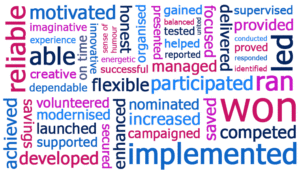In today’s competitive job market – especially in industries like call centres, contact centres, and BPOs (Business Process Outsourcing) – your CV is often your very first interaction with a potential employer.
Whether you’re trying to secure a promotion, move into a supervisory role, or apply to a company that isn’t currently advertising, a well-crafted CV can open the door to a more rewarding and challenging job.
Think of it as your personal sales pitch – one that can mean the difference between landing an interview and landing on the reject pile.
This guide will help you shape a CV that reflects your achievements, demonstrates your potential, and positions you as someone who’s worth hiring.
10 Steps to Make Your CV Really Stand Out
A well-written CV doesn’t just summarise your job history, it presents a compelling case for why you’re a great hire.
It reflects not only your experience and skills, but also your attitude, professionalism, and readiness for the next challenge.
In high-demand fields like contact centres and BPOs, where employers value precision, efficiency, and personality, a thoughtful CV can make all the difference.
Take the time to get it right, check the details, tailor your message, and lead with your strengths.
To get you started here are 10 actionable steps to help make your CV stand out – for the right reasons:
1. Treat Your CV Like a Marketing Tool
Your CV is more than just a record of where you’ve worked. You need to make an instant impression and should view it as a marketing tool, with which you are able to promote yourself.
Like any good marketing material, it needs to grab attention immediately and communicate value quickly.
So, imagine the CV as a brochure that will list the benefits of a particular service – the service being your experience and skills.
When putting it together you should ask yourself: would you stand out against the competition and would the employer want to interview you for a possible job?
Especially in BPO and call centre recruitment (where CVs are often skimmed in seconds) yours needs to clearly highlight what makes you unique.
2. Focus on Achievements, Not Just Duties
Many people fall into the trap of listing responsibilities instead of showing results, so you need to remember to focus on your achievements, giving examples of tasks you have successfully completed that demonstrate your strengths and competencies.
These should include activities that reflect your attitude and personality, as employers already know what a call centre agent or BPO coordinator does, what they really want to see is how well you did it.
Highlight specific achievements that demonstrate your capabilities, rather than simply stating activities you have done, always explain what skill you have gained from that activity and the results you achieved.
For example, rather than stating “Handled incoming customer complaints,” you could say, “Resolved 92% of complaints on first contact, consistently meeting monthly KPIs.” This shows competence, efficiency, and impact.
3. Back Up Every Skill with Real Examples
Never simply state a skill. Rather, try to back it up with a real life situation.
You should avoid vague claims like “Excellent team player” or “Strong organisational skills”, and instead, provide a real-life example that proves the point.
This gives your CV substance and helps the employer understand how your skills translate into action.
For example, rather than saying: “I recently helped implement a new customer relationship management (CRM) programme for call agents to work from”, or “I have good time management skills”, put them together and say “assisting the implementation of a new CRM application to a strict deadline of two months helped me further my planning and time management skills”.
4. Let Your Personality and Attitude Shine Through
Your qualifications get you noticed, but your attitude often gets you hired. Employers want to know what kind of colleague you’ll be, especially in environments where collaboration, communication, and customer empathy are critical.
Include examples that show initiative, reliability, or a positive mindset. For instance, mention if you took the lead in mentoring new hires or volunteered to pilot a new process.
These experiences reflect not just your ability, but your approach to work, something that’s essential in team-driven contact centre environments.
5. Keep It Clear, Concise, and Focused
Your CV should never be more than two sides of A4. Recruiters often spend less than a minute reviewing each application, so it’s vital to keep things sharp and relevant.
Avoid lengthy paragraphs or cluttered formatting, and use clear headings, short sentences, and consistent structure throughout.
And while it might be tempting to cram in every detail, remember quality beats quantity. Every word should earn its place.
6. Use a Clean, Professional Layout
Presentation matters, not because of style, but because it reflects professionalism and attention to detail.
Make sure the appearance of your CV is professional by avoiding fancy formatting (like fonts, colours, or graphics) and sticking to white or cream, good quality paper.
A CV that is neat, legible, and well-organised will always stand out more than one that tries too hard to impress visually.
7. Always Include a Tailored Cover Letter
Remember that your CV should always be accompanied by a covering letter – especially if you are targeting a company that may not currently be advertising positions.
A cover letter gives you the chance to connect with the company and show that you understand who they are and what they need.
Covering letters should be tailored to each different company, mention each company by name, and explain why you want to work there and what qualities you have to offer over other applicants.
Highlight one or two key strengths from your CV, and keep it brief, as a cover letter should be no longer than a few well-crafted paragraphs, and should interest and motivate the recruiter to read your CV.
In other words, make the letter professional and enthusiastic in both writing style and appearance.
8. Match Your CV and Cover Letter Visually and in Tone
Consistency makes a difference, so you should use the same font, layout, and formatting across both documents.
Not only does this create a cohesive impression, but it also signals that you’re detail-oriented and organised, which are two qualities that are essential in operational environments like BPOs.
When writing, keep the tone professional yet positive. Draw attention to key skills in both documents to reinforce them, and always close by stating that you’re available for interview.
9. Prepare Both Digital and Print Versions
Be ready to share your CV in any format, at any time. Always have an up-to-date electronic version, preferably as a PDF, ready to send via email or upload to a job portal.
But don’t overlook the value of a well-presented printed copy, some employers may request one during face-to-face interviews or at assessment centres.
Being prepared for both formats shows that you’re proactive and adaptable, which are key qualities in modern workplaces.
10. Check, Double-Check, and Triple-Check
Finally, attention to detail is non-negotiable, especially as a single typo or outdated phone number can undo all your hard work.
To avoid this go through your CV multiple times, ask a friend or colleague to read it, and double-check your contact details on both your CV and cover letter.
There’s no point having a fantastic CV if no one can reach you or if small errors create a negative first impression.
With thanks to Steve Girdler for contributing to this article.
If you want to get involved just join our LinkedIn Community and if you aren’t already make sure you are following us on LinkedIn to see our latest content.
For more answers to common CX, BPO, call centre, and contact centre questions, read these articles next:
- How Do I Give My Boss Constructive Criticism?
- How To Combat Bullying and Harassment in the Workplace
- How Do I Mentor Someone to Best Effect?
- How Do I Apply For a Promotion?
Author: Robyn Coppell
Reviewed by: Jo Robinson
Published On: 13th Jan 2006 - Last modified: 20th Jan 2026
Read more about - Call Centre Questions, Call Centre Answers, Career




































